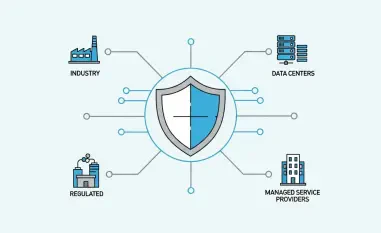In the fast-paced and ever-shifting landscape of cybersecurity, the Chief Information Security Officer (CISO) emerges as a pivotal figure tasked with protecting organizations from an onslaught of digital threats, and with recent data indicating that 43% of UK businesses encountered a cybersecurity breach or attack in the past year, soaring to 74% for larger enterprises, the stakes couldn’t be higher. This relentless threat environment places CISOs under immense pressure, where a single misstep can have catastrophic consequences. Beyond just technical expertise, the role demands a unique blend of strategic vision and emotional fortitude to manage crises while aligning security with business goals. This exploration delves into how CISOs can thrive amidst such challenges by anchoring themselves in control, cultivating resilience, and embracing collaboration as a cornerstone of their leadership approach. The journey of a CISO is not merely about surviving the next breach but about building a lasting legacy of security and strength.
Balancing Strategy and Crisis in the CISO Position
The role of a CISO is inherently dualistic, requiring a seamless shift between long-term strategic planning and urgent crisis management. One moment, they might be designing comprehensive security frameworks to protect against future threats; the next, they’re in the trenches addressing a live data breach. This constant toggling demands a rare combination of deep technical knowledge and exceptional leadership skills to ensure that security initiatives support broader organizational objectives. The pervasive threat landscape, underscored by alarming breach statistics, often leaves CISOs grappling with a sense of isolation as they brace for inevitable attacks. Yet, within this high-pressure context lies an opportunity to profoundly influence an organization’s resilience, turning potential vulnerabilities into fortified defenses through thoughtful planning and execution.
Beyond the technical demands, the emotional weight of anticipating and mitigating risks can be staggering for CISOs. The anxiety of not knowing when or how the next cyber incident will strike often looms large, creating a backdrop of persistent stress. However, this challenge also serves as a catalyst for meaningful impact. By shaping a robust security posture, CISOs protect critical assets and foster trust across the enterprise, positioning themselves as indispensable leaders. Success in this arena requires not just reacting to incidents but proactively building systems and cultures that prioritize security at every level. This dual focus on immediate response and forward-thinking strategy distinguishes exceptional CISOs, enabling them to navigate the complexities of their role with confidence and purpose, ultimately safeguarding the organization’s future.
Seizing Control Through Proactive Measures
For CISOs, mastering the art of control in an unpredictable field is fundamental to effective leadership. This begins with clearly defining their scope and responsibilities within the organization, particularly in discussions with the board and key stakeholders. Establishing these boundaries early helps prevent misaligned expectations and conflicting priorities that can derail security efforts. In the initial months of their tenure, many CISOs focus on tailoring their communication style to build credibility and trust with diverse audiences, from technical teams to executive leadership. This deliberate approach to role definition lays a critical foundation for navigating internal politics and securing the influence needed to drive security initiatives forward with authority and clarity.
Equally important is the commitment to strategic foresight amidst daily operational demands. Too often, CISOs find themselves consumed by reactive firefighting, leaving little room for long-term planning. Successful leaders counter this by intentionally scheduling time for strategic reflection, ensuring they’re not just addressing current threats but anticipating future ones. This proactive mindset allows them to align security measures with evolving business needs, creating a cohesive defense strategy that withstands scrutiny. By focusing on what can be controlled—such as policy development, stakeholder alignment, and resource allocation—CISOs transform chaos into structure. This disciplined approach not only mitigates risks but also positions them as visionary leaders capable of steering their organizations through turbulent digital waters with precision and resolve.
Harnessing Collaboration to Manage Crises
In the face of a crisis, such as a ransomware attack, no CISO can afford to operate in isolation. Building robust relationships with internal teams and deputies well before disaster strikes is essential for effective crisis management. These pre-established bonds enable seamless delegation of tasks and ensure clear, consistent communication with senior leadership during high-stress scenarios. A strong internal network allows CISOs to maintain focus on strategic oversight rather than getting bogged down in operational minutiae. By fostering a culture of shared responsibility, they ensure that the entire organization is aligned in its response, turning potential chaos into a coordinated effort that minimizes damage and accelerates recovery.
Additionally, the value of external collaboration cannot be overstated in alleviating the burdens of the role. Engaging regularly with a network of peer CISOs provides access to fresh perspectives and innovative solutions that might not emerge in isolation. These connections also offer emotional support, helping to counteract the sense of loneliness that often accompanies the position. During a crisis, tapping into this community can yield critical insights or simply provide a sounding board for tough decisions. Such collaborative efforts transform individual struggles into collective triumphs, reinforcing the idea that cybersecurity is a team endeavor. By prioritizing these relationships, CISOs not only enhance their crisis response capabilities but also build a broader ecosystem of resilience that benefits the entire industry.
Addressing the Emotional Toll with Self-Care
The relentless demands of the CISO role often exact a significant emotional and physical toll, with constant vigilance and extended work hours pushing many toward burnout. Personal accounts from industry leaders reveal how the pressure to prevent breaches can lead to severe stress, sometimes culminating in health crises that serve as stark wake-up calls. The weight of responsibility—knowing that a single oversight could compromise an entire organization—creates a unique strain that few other roles experience. Recognizing this burden is the first step toward addressing it, as it underscores the need for intentional strategies to maintain well-being while managing one of the most high-stakes positions in modern business.
Mitigating this strain requires a commitment to self-care, which is far from a luxury but a critical component of sustainable leadership. Simple practices, such as scheduling regular breaks or taking designated time off, can make a profound difference in maintaining mental clarity and emotional balance. Many CISOs have found that delegating non-critical tasks allows them to preserve energy for strategic priorities, reducing the risk of exhaustion. Beyond personal habits, fostering a workplace culture that values balance and supports mental health initiatives can further alleviate pressure. By prioritizing their well-being, CISOs ensure they remain effective leaders capable of guiding their teams through challenges with resilience and focus, ultimately benefiting both themselves and their organizations.
Shaping a Legacy of Strength and Impact
Reflecting on the journey of countless CISOs, it becomes clear that their role, though fraught with challenges, offers unparalleled opportunities to leave a lasting mark on organizational security. Many looked back on their tenure and recognized that by focusing on controllable factors—such as defining clear roles, nurturing trust, and empowering their teams—they had shifted the narrative from mere crisis survival to impactful leadership. This deliberate approach enabled them to build robust security frameworks that withstood evolving threats, setting a standard for resilience that endured beyond their time in the position.
Moving forward, aspiring and current CISOs should consider adopting a mindset that prioritizes preparation over reaction, ensuring they lay the groundwork for success before crises emerge. Investing in strong relationships, both within and outside the organization, stands as a powerful strategy to distribute responsibility and gain support during turbulent times. Additionally, embedding self-care into daily routines will sustain their capacity to lead effectively over the long term. By embracing these principles, CISOs can redefine their legacy, transforming the role into a beacon of strength and innovation in the cybersecurity realm, ready to face whatever challenges lie ahead.













